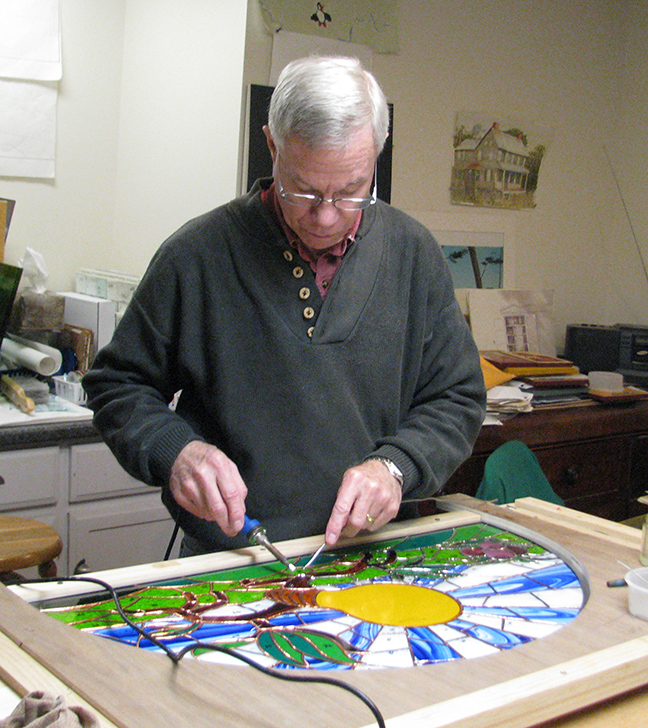
Application, Description & Image Assessment
Master Artisan status recognizes artists in the Guild who exemplify our three benchmarks: Excellence in Craftsmanship, Resolved Design and Unique Voice or Faithful Representation of a Heritage Craft. To achieve this honor, members’ work is juried by a panel of Master Artisans.
Members may apply, via the link below, to be scheduled for a Master Artisan Jury Session. The online application requires 4 to 6 digital images representative of the work that will be brought for hands-on review and a statement outlining the applicant’s craft background, education, specialized techniques, and studio setup.
Jury sessions are limited to 14 applicants per day to allow for a thorough review by a select jury of Master Artisans. Applications are reviewed by the Standards Committee and scheduling is done based on the date of receipt of the application, the completeness of the application, and review of the information received. Applicants will be notified of their scheduled Master Artisan Jury Session date and time as soon as possible.
The non-refundable application fee is $55. In the event an applicant is not approved for Master Artisan status, he or she may reapply within two years of first application at the reduced application rate of $25.
Benefits of Master Artisan Status
- Recognition and acknowledgment that the artisan has achieved a level of exceptional ability and has produced work of true excellence.
- Special consideration for participation in PGC exhibitions.
- Eligibility to win awards presented at PGC Fine Craft Fairs.
- Priority image use on PGC marketing and advertising materials.
- Featured profile page on PGC website’s membership directory.
- Show selection scoring bonus for PGC Fine Craft Fairs.
- Eligibility for “Monday Meet the Master Artisan” on PGC’s social media.

Only craftsmen members in good standing may apply to be a Master Artisan. If you are a craftsman member and you would like to apply but cannot see an available session below, please click here to login to the site and return to this page to apply for a Master Artisan jury session!
Our Three Benchmarks
Excellence In Craftsmanship
Excellence in craftsmanship is reserved for work that shows the highest standards of quality. The work demonstrates a mastery of the medium, far beyond basic and intermediate proficiency skills. Attention to details and a thorough knowledge of the medium is demonstrated. Materials used are of the highest quality and of the best choice to enhance the overall design of the piece. The entire work is executed without technical flaw and it meets its intended purpose — e.g., if it’s a pitcher, it must pour, a jacket must fit, a drawer must glide freely. The appropriateness of technique and process are successfully united in a piece that shows excellence of craftsmanship.
Resolved Design
Resolved Design shows good composition and artistic excellence. Choice of materials and methods shows innovation and mastery. Criteria for reproduction or original interpretation of traditional work include both the use of materials that are appropriate to the period and style and documentation to support the traditional style of the work being interpreted or reproduced.
Unique Voice
Unique Voice speaks of the true creative nature of the Master Artisan who creates contemporary fine craft. The conceptual richness evidenced in the work shows the nature, complexity and execution that marks the work as particular to this individual artisan. It is distinctive. Unique Voice sets it apart from the work of others. It achieves an individual identity readily recognizable as belonging to this artisan.
Faithful Representation indicates the faithful and sensitive reproduction or original interpretation of traditional styles, designs, and shapes that have defined long-respected works of the craftsmen of our history.
The Three Jury Processes
There are three separate and distinct types of jurying done by our Standards Committee:
- Master Artisan Status Jurying
- Fine Craft Fair Exhibitor Selection Jurying
- Fine Craft Fair Floor Jurying
